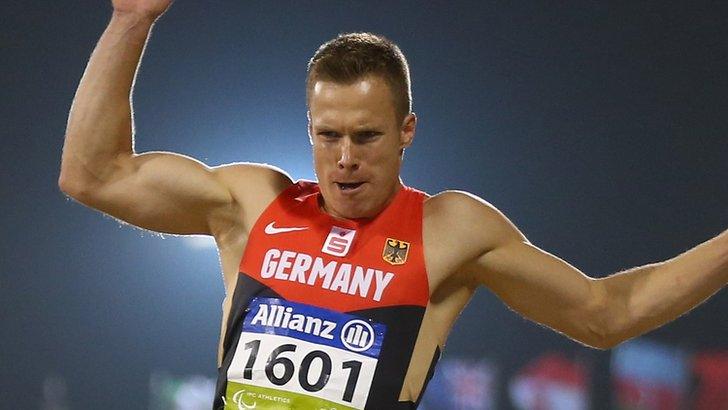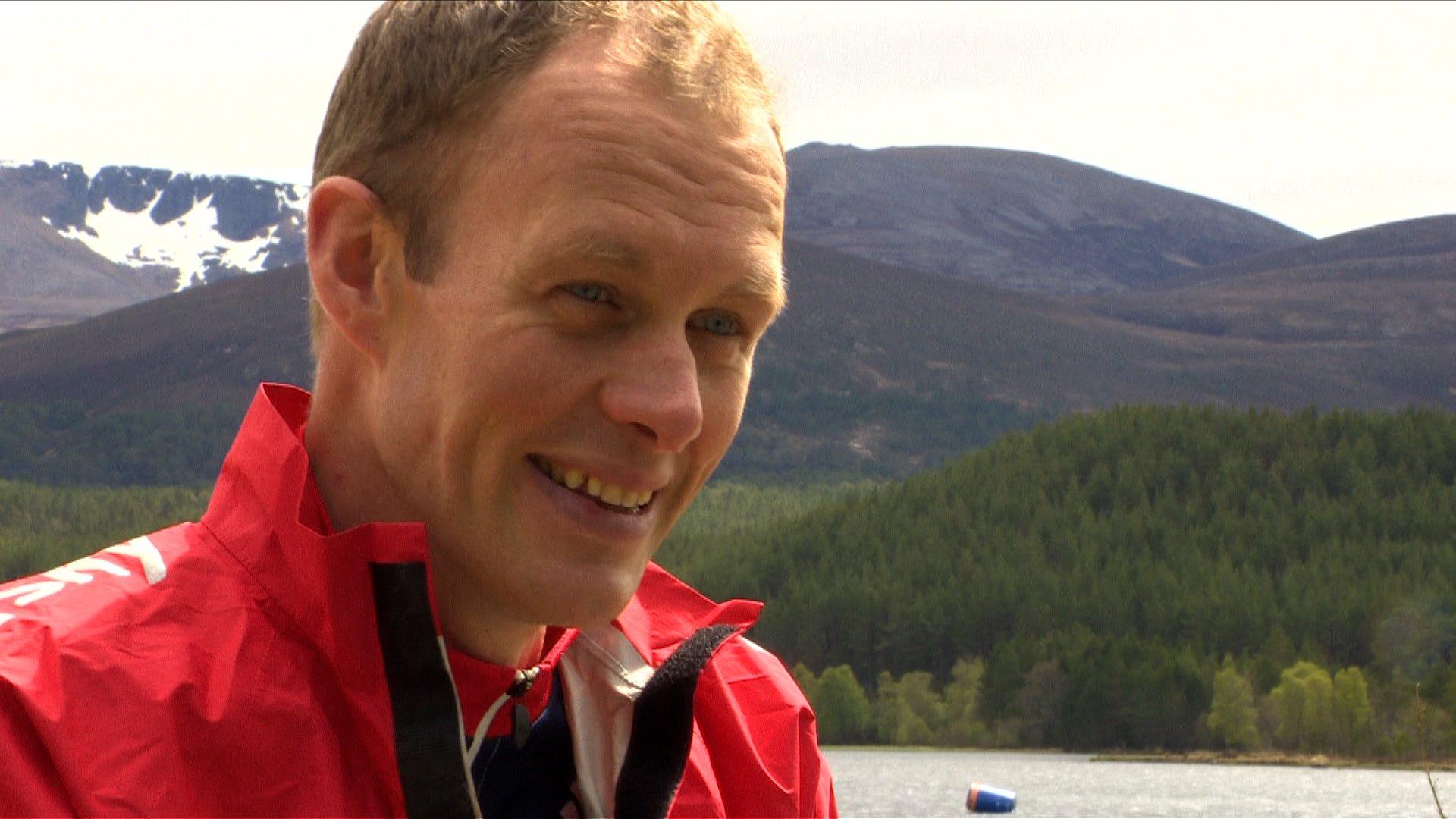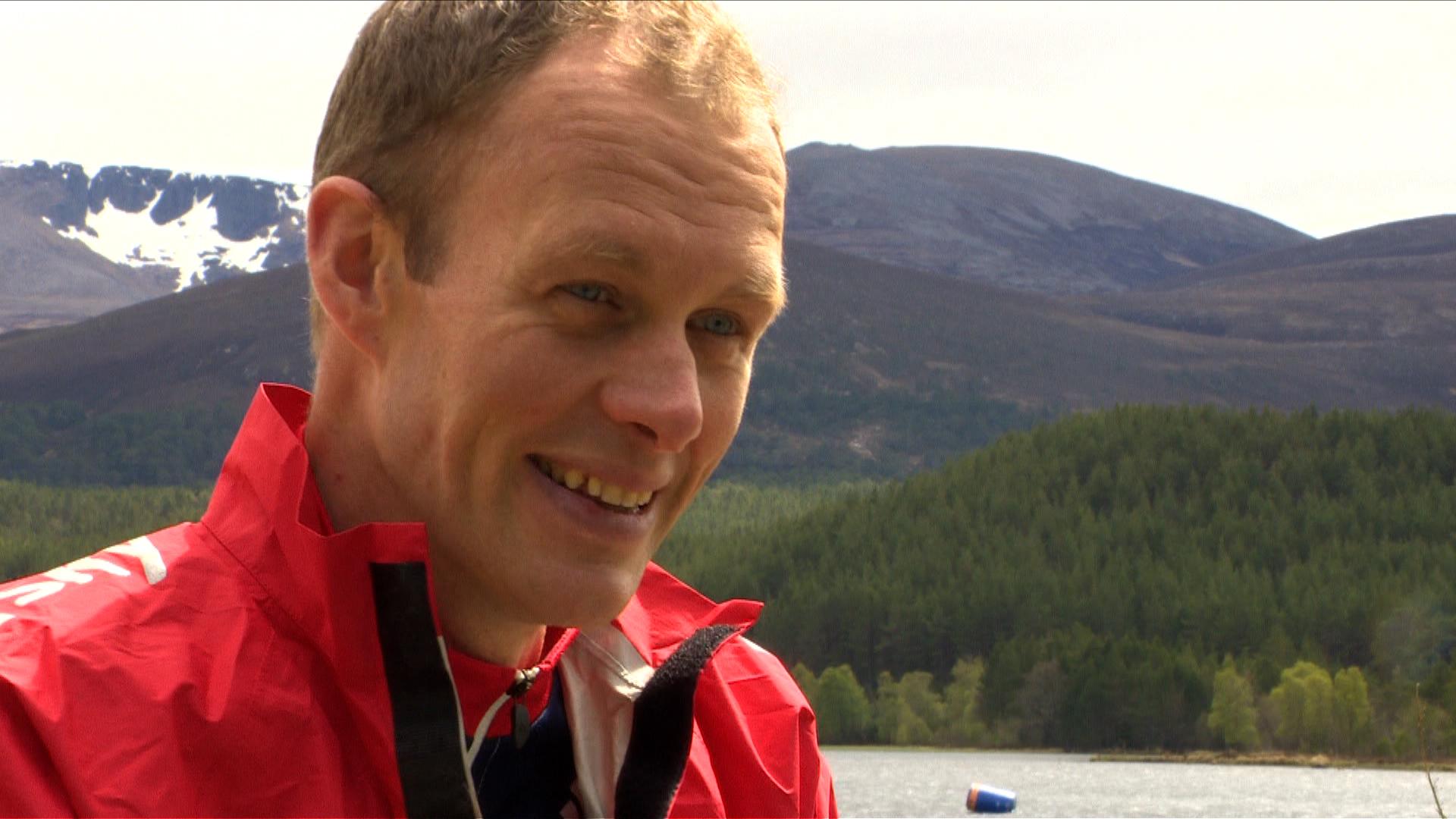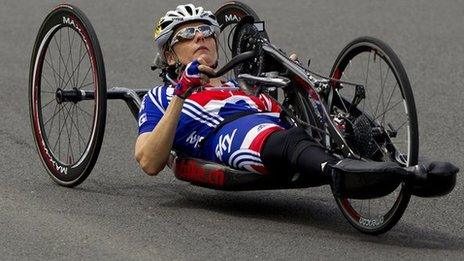Paralympic cyclist David Smith: I could have died on my bike
- Published
GB's David Smith will not compete at the Rio 2016 Paralympics
Britain's David Smith says he could have died on his bike if he had delayed surgery on a spinal tumour to compete at the 2016 Rio Paralympics.
The 37-year-old Scot was hoping to be part of the Great Britain Para-cycling team after winning rowing gold in 2012.
Smith faces a high-risk operation on 1 March and told BBC Sport: "The fight to make Rio is now a fight to stay alive.
"Sport is everything to me but there has to be a moment where I think, 'I could die on the bike.'"
He added: "If I keep pushing, the tumour is going to crush my spinal cord and I'll stop breathing."
Smith has had three rounds of surgery on the tumour, including two in 2010.
When it returned in September 2015, he planned to postpone the latest procedure.
"There was 8mm left still inside the spinal cord, so we made the decision with the surgeon to try and push to make the World Championships [in March] and get a qualifying spot for Rio," he said.
"So I took myself off to Spain to train for all of December and most of January. I had a slight crash on the bike out there, came back and had a scan on 31 January.
"The following week I was on the velodrome and had a really sharp pain go through my neck. I came off the bike and fell over. My legs gave up. I couldn't stand, couldn't walk. I was in a lot of pain.
"I went home that night and there was an email from the surgeon to say, 'look, you need to come in next week'. I knew on the train journey there that is was going to be bad news, but it was a little bit worse than I thought.
"There's a small bleed inside the tumour. That might have been caused from coming off the bike - we don't know - but there's certainly a bleed and if the bleed haemorrhages then you could die.

Smith and team-mate Naomi Riches were among Britain's rowing gold medallists at London 2012
"So as hard as it is to let go of the dream, I've got no option really.
"The fact that the surgery is on 1 March makes it really real and from that I can see how much of an emergency it is to get in there and try to remove this tumour."
Smith is optimistic the operation will be a success and is already planning his rehabilitation, but he is aware there are no guarantees.
"This time they're going to go through my groin, through the front of the neck and potentially the back of the neck," he explained.
"There are all sorts of complications that can happen.
"The way I go into it is like going into any major competition - with the perception that it's just a challenge. But I'm a realist.
"I feel really healthy right now. So to sit and sign papers to say, 'if it doesn't go well and I don't survive this is what I want to happen with everything' was a really surreal moment.
"Everything in me is telling me to run, to jump on a plane and don't go to surgery.
"It's really hard to walk into the hospital feeling so healthy, walk to anaesthetic, get on the bed, feel the anaesthetic going in and then just close your eyes not knowing if you'll open them again, knowing that one touch of the wrong nerve could stop you breathing."
Smith was born with clubfoot and came close to having his right foot amputated at birth.
He spent three years learning to walk in special boots and plaster casts, but went on to represent Britain in able-bodied karate and bobsleigh.
Smith narrowly missed out on qualification for the 2006 Winter Olympics but was later spotted by the British Paralympic Association and introduced to adaptive rowing.
Amid his battle with the spinal cord tumour, he became a world and Paralympic rowing champion before turning his attention to cycling.
"If surgery goes wrong and I wake up and I'm paralysed from the neck down and on a ventilator, I have memories, and that's the one thing that coming through this whole journey has taught me," Smith added.
"When I'm in hospital I'll think back to when I was at the start gate in a Rowing World Cup race last year and bike racing on closed roads. For me, that will be worth 10 goal medals."
- Published17 February 2016

- Published13 February 2016

- Published8 June 2015

- Published5 September 2016
